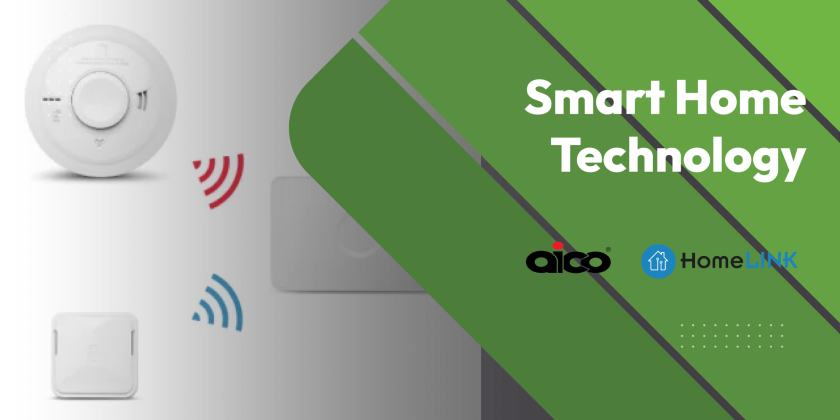Choosing the right company is the biggest decision you’ll make when buying solar panels. Get it wrong, and you could be left with huge costs and a massive headache.
As solar has become more popular, the market is flooded with companies making claims and promises about the best service and products.
In this guide, we’ll help you identify a trustworthy and competent solar company so your switch to solar energy is smooth and stress-free.
Ready? Let’s go…
Researching Solar Companies
Company History
As solar popularity has exploded, so has the number of solar companies. With everyone trying to cash in on the boom, choosing a good company has become more difficult.
There are simple checks you can do to reduce the risk. Checking how long a company has been established, it’s financially stable and who the directors are can be done quickly. Companies House is a good place to start. It offers free and paid options. If you are going to spend thousands on solar, spending a few pounds to find out financial information could be money well spent.
Checking a company’s website also provides clues. Check T’s &C’s (do they have them), company information, and try to get a feel for the company. Are they active on social media? Check their LinkedIn, X, Facebook or Instagram accounts. Do they have accounts? Do they post regularly?
Checking Credentials
First, ensure the company holds the necessary licences and certifications. In the UK, look for certifications from bodies like the Microgeneration Certification Scheme (MCS), which ensures the company meets the required standards for solar installations. Additionally, membership in reputable trade associations such as the Renewable Energy Consumer Code (RECC) can indicate a commitment to high standards and customer satisfaction. As a general rule, the more accreditations a company has the better.
Furthermore, check their experience by asking how long they have been in business and the number of installations they have completed. A well-established company with a robust portfolio is more likely to provide reliable service.
Awarding bodies include:
1. MCS (Microgeneration Certification Scheme)
Importance: MCS certification is essential for any company installing renewable energy systems, including solar panels. It ensures that the products and installations meet high-quality standards.
2. RECC (Renewable Energy Consumer Code)
Importance: Membership in the RECC signifies that the company adheres to a consumer code that ensures high standards of service. It covers areas such as advertising, contracts, and after-sales service.
3. NAPIT (National Association of Professional Inspectors and Testers)
Importance: NAPIT membership is a sign that the company’s installers are qualified to work on electrical installations, including solar panel systems.
4. NICEIC (National Inspection Council for Electrical Installation Contracting)
Importance: NICEIC accreditation means the company’s electricians are competent and qualified to meet safety standards for electrical installations.Website: NICEIC
5. HEIS (Home Insulation & Energy Systems Contractors Scheme)
Importance: HEIS membership ensures that companies follow a code of practice that protects consumers in the home energy sector, including solar energy.
6. TrustMark
Importance: TrustMark is a government-endorsed quality scheme that covers work a consumer chooses to have carried out in or around their home. TrustMark approval is a good indicator of a company’s reliability and competence.
7. CHAS (The Contractors Health and Safety Assessment Scheme)
Importance: CHAS accreditation demonstrates that the company complies with health and safety standards, which is crucial for any construction-related work.
8. ISO Certifications
ISO 9001: Certification for quality management systems.
ISO 14001: Certification for environmental management systems.
Importance: These certifications indicate that the company follows international standards for quality and environmental management.
9. HIES (Home Insulation & Energy Systems Quality Assured Contractors Scheme)
Importance: HIES membership means the company adheres to standards that protect consumers’ rights, ensuring high-quality service and installations.
10. Competent Person Scheme (CPS)
Importance: Registration with a CPS like the Electrical Competent Person Scheme ensures that the installers are authorized to self-certify that their work complies with building regulations.
Reading Reviews and Testimonials
Reading reviews and testimonials is an essential part of researching solar companies. Online platforms such as Trustpilot, Google Reviews, and social media provide valuable insights into customer experiences. Pay attention to recurring themes in the feedback, both positive and negative. Consistent praise for aspects like professionalism, timely completion, and quality of workmanship can indicate a reliable company.
If you notice repeated complaints about poor customer service, hidden costs, or subpar installations that’s a red flag. Testimonials on the company’s website can also be helpful, but remember they may only showcase the best experiences. Consider reaching out to the reviewers directly if possible, to ask detailed questions about their experiences.
Finally, look for reviews specific to your area. Local customers can provide insights into how the company performs in your region, considering factors like climate and local regulations.
Comparing Quotes
Get quotes from at least three reputable companies. Each quote should include the total cost, a breakdown of materials, labour, and any additional fees. Check the brands and model of the solar panels and inverters.
Evaluate the warranties offered. A good warranty covers both the equipment and the installation. Be cautious of unusually low quotes, as they may indicate lower-quality materials or hidden costs that could arise later.
Consider the company’s customer service and responsiveness during the quoting process. Prompt and clear communication is a good sign of their reliability and professionalism. By carefully comparing these aspects, you can make an informed decision that balances cost with quality and service.
Evaluating Installation Services
Assessing Installation Process
Begin by understanding the timeline. A reputable solar company should provide a clear schedule that outlines each phase, from initial assessment to final connection.
Next, inquire about the installation team. Confirm that the installers are certified professionals with experience in solar installations. It’s also helpful to know if the company uses subcontractors, as this can impact the quality and accountability of the work.
Additionally, ask about the preparation process. This includes roof inspections and any necessary adjustments to accommodate the solar panels. A thorough preparation phase is crucial to avoid future issues.
Post-Installation Support
Post-installation support is a critical aspect of choosing the right solar company. After the panels are installed, reliable companies will conduct a thorough system test to ensure everything is functioning correctly. They should provide you with a detailed explanation of how your solar system works, including how to monitor performance and what to do in case of issues.
Moreover, ask about the company’s maintenance services. Regular maintenance checks can prolong the life of your solar system and ensure it operates at peak efficiency. Some companies offer maintenance packages that include periodic inspections and cleaning services.
In addition, find out about their customer support channels. A company with robust post-installation support will offer multiple ways to get assistance, such as phone, email, or online chat. Prompt and helpful customer service is essential for resolving any issues that may arise after installation, giving you peace of mind in your investment.
Warranty and Maintenance
A comprehensive warranty should cover both the equipment and the installation. Generally, solar panels come with a performance warranty of 25 years and a product warranty ranging from 10 to 15 years. Ensure the inverter, a critical component, also has a robust warranty, typically around 10 years.
In addition to warranties, consider the company’s maintenance services. Regular maintenance can help identify potential issues before they become significant problems. Some companies offer maintenance packages that include annual inspections, cleaning, and performance checks.
Clarify what the maintenance service entails and any additional costs involved. A company that offers extensive post-installation support and maintenance demonstrates a commitment to customer satisfaction and system longevity. By understanding these aspects, you can ensure your solar investment remains efficient and trouble-free for years to come.
Financial Considerations
Understanding Costs
The main costs include the purchase of solar panels, inverters, mounting hardware, and installation labour. Additionally, there may be costs for permits and inspections required by local authorities.
Consider the long-term savings on energy bills when evaluating the upfront investment. Solar panels can significantly reduce your electricity costs, potentially paying for themselves over time.
Lastly, consider financing options. Some companies provide payment plans or solar loans, allowing you to spread the cost over several years. Understanding these financial aspects will help you plan your budget effectively and maximise the return on your solar investment.
Financing Options
If you are considering finance to spread the costs of your solar, ensure the company is using an FCA-regulated company.
Making the Final Decision
Questions to Ask
Start by asking about the company’s experience and credentials. Questions like “How long have you been in business?” and “Are you certified by the Microgeneration Certification Scheme (MCS)?” can provide insights into their expertise and reliability.
Next, talk about the specifics of the solar system they recommend. Ask, “What type of solar panels do you use, and why?” and “Can you provide a detailed quote with all costs involved?” Understanding the equipment and financial aspects is essential for a transparent decision.
Additionally, inquire about the installation process and post-installation support. Questions like “Who will handle the installation?” and “What kind of maintenance services do you offer?” can help you gauge their commitment to quality and customer service.
Red Flags to look for
One major red flag is a lack of proper certifications and licences. Ensure the company is accredited by recognised bodies like the Microgeneration Certification Scheme (MCS).
Another warning sign is vague or evasive answers to your questions. A reputable company should provide clear, detailed information about their products, services, and pricing. Be cautious of companies that push for a quick decision or use high-pressure sales tactics.
Additionally, steer clear of companies that offer unusually low quotes. While competitive pricing is attractive, significantly lower costs may indicate the use of inferior materials or hidden fees that could arise later.
Finally, poor customer reviews and a lack of references can be indicative of unreliable service. Always check for consistent negative feedback or unresolved complaints. Being vigilant about these red flags can help you avoid potential pitfalls and select a trustworthy solar company.
Trusting Your Instincts
Trusting your instincts is an essential part of making the final decision in choosing a solar company. While research, reviews, and comparisons provide valuable information, your gut feeling should not be ignored. If something feels off during your interactions with the company, it’s worth paying attention to those feelings.
Consider how the company responds to your questions and concerns. Are they transparent and willing to provide detailed explanations, or do they seem evasive and dismissive? A company that values your trust will take the time to ensure you feel comfortable and informed.
Additionally, reflect on the professionalism and reliability shown during your communications. Were appointments kept punctually, and did the representatives seem knowledgeable and respectful? These aspects can be telling of the overall service quality you can expect.
Ultimately, if you have reservations despite positive reviews and competitive quotes, it may be wise to explore other options. Trusting your instincts can help you make a decision you feel confident and comfortable with.



